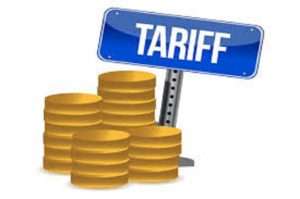The Volokh Conspiracy
Mostly law professors | Sometimes contrarian | Often libertarian | Always independent
The Tariff Madness Isn't Over
Even after Trump paused some of his new tariffs for 90 days, we still have the highest average tariffs in over a century and the biggest trade war since the Great Depression. Real relief will only come if Congress or the courts deny Trump the power to do this.

When Donald Trump paused many of his awful "Liberation Day" tariffs yesterday, there was some understandable relief. Some even seem to assume the tariff crisis is over. For example, Democratic Senate Leader Charles Schumer, posted on Bluesky that "History will remember April 9, 2025 as America's actual liberation day—the day that President Trump backed down from his ridiculous tariff fiasco."
But any celebration is premature. The truth is Trump has not fully backed down. A whopping 10% tariff on nearly every nation in the world is still going into effect immediately, along with a huge increase on tariffs for Chinese goods (up to 145%). It's enough to impose a huge tax increase on Americans (an average of $4700 per household). And the additional "reciprocity" tariffs are only paused for 90 days, not cancelled.
Even with the pause, we now have the highest overall average effective tariff rate since 1909 - higher even than the infamous Smoot-Hawley tariff of 1930 that played a major role in deepening the Great Depression. And that includes high tariffs on nations like Switzerland and Israel, which don't impose any tariffs on US goods - thereby giving the lie to the notion that Trump's trade war is about breaking down "unfair" trade practices by other nations.
Moreover, so long as Trump seemingly has the power to impose massive tariffs at will, the crisis will not be over, even if he suspends all of them. Investors and producers will still face a climate of uncertainty, destroying incentives to make any kind of long-term commitments. Why build a factory, invest in one, or commit to a long-term contract, if your business could be wiped out any time the man in the White House wakes up on the wrong side of his bed, and decides to trash the world economy again?
The only way to truly end this crisis is to curb the power of the president to set tariffs. That could be done by Congress passing a law constraining the executive. There is in fact bipartisan legislation before the Senate and the House that would do exactly that, by voiding any tariffs imposed by the executive unless Congress passes a law approving them within 60 days. But even if it passes (which is far from guaranteed), Trump would veto it, and there is little or no chance that supporters can muster the two-thirds supermajorities in each house needed to override.
That leaves the second path to restoring stability: courts should strike down Trump's tariffs because they are illegal. In a previous post, I detailed multiple reasons why this is the right conclusion. They include the statutory text of the International Emergency Economic Powers Act of 1977 (IEEPA) (which, among other things, does not authorize tariffs), the major questions doctrine, nondelegation, and more.
The Liberty Justice Center and I are proceeding with our planned lawsuit challenging the "Liberation Day" tariffs on behalf of US firms that import goods from the many countries targeted with tariffs. Other groups are also likely to file cases. If we prevail, there may be true liberation from this insanity.
UPDATE: The original version of this post said the China tariff was set at %125. But it is actually now at %145. I apologize for the mistake, which has now been corrected.


Show Comments (7)